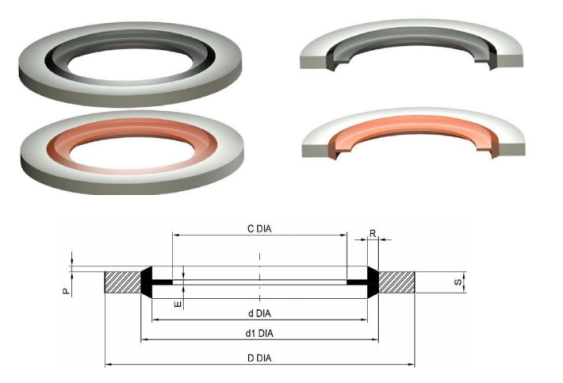Choosing the Optimal Gasket Material for Your Oil Pan Replacement
The Best Gasket Material for Oil Pans
When it comes to ensuring a proper seal in an oil pan, selecting the right gasket material is crucial. An oil pan serves as the reservoir for the engine's oil, and maintaining its integrity is essential for optimal engine performance and longevity. With various gasket materials available on the market, understanding their properties, advantages, and disadvantages can help you make an informed choice for your vehicle.
Common Gasket Materials
1. Rubber Rubber gaskets are incredibly popular due to their flexibility, ease of installation, and sealing capabilities. They can adapt well to various surface irregularities, which helps prevent leaks. However, rubber is susceptible to degradation over time, particularly when exposed to high temperatures or harsh chemicals found in engine oil. This can lead to hardening or cracking, eventually resulting in oil leaks.
2. Cork Cork gaskets are another common choice, known for their ability to provide a tight seal and adaptability to different surfaces. They have excellent compressibility, which can help accommodate slight imperfections in mating surfaces. However, cork is prone to drying out and becoming brittle over time, especially in high-temperature environments. This makes cork gaskets less ideal for long-term use in oil pans compared to other materials.
3. Silicone Silicone gaskets have gained popularity due to their high resistance to extreme temperatures and excellent sealing properties. They maintain flexibility over a wide temperature range, making them suitable for high-performance engines. Silicone does not degrade as quickly as rubber or cork, and it can effectively handle exposure to oil and other fluids. However, they can be more expensive than traditional gasket materials.
4. Fiber Fiber gaskets are composed of cellulose or synthetic fibers and are designed to provide a robust seal for oil pans. These gaskets can endure high pressures and maintain their integrity over time, making them a reliable choice. Fiber gaskets can be treated or impregnated with oils for additional resistance against degradation. However, they may not provide as tight a seal as silicone or rubber gaskets, and installation can sometimes be more complex.
5. Metal Metal gaskets, often made from aluminum or steel, are incredibly durable and capable of withstanding extreme temperatures and pressures. They can provide a long-lasting seal that may not require replacement during the life of the engine. However, they usually require a smoother mating surface to achieve an effective seal. Additionally, metal gaskets may be more difficult to install and may require precise torque specifications.
best gasket material for oil pan

Factors to Consider
When choosing the best gasket material for your oil pan, there are several factors to consider
- Temperature Resistance The gasket must be able to withstand the operating temperatures of the engine without degrading or losing its sealing capabilities. - Chemical Resistance The ability to resist degradation from engine oils and other fluids is paramount. Materials like silicone typically outperform others in this category.
- Surface Compatibility The material should be able to conform to the surface irregularities of the oil pan and engine block to prevent leaks.
- Longevity Consider how long you need the gasket to last. If you're looking for a permanent solution, metal or high-quality silicone gaskets might be more suitable.
- Cost Different materials come at various price points. Weigh the cost against the benefits to find the right balance for your specific application.
Conclusion
Selecting the right gasket material for your oil pan can have a significant impact on engine performance and reliability. Rubber and cork gaskets are good for standard applications, while silicone and metal gaskets offer superior endurance and sealing capabilities, particularly for high-performance engines. Fiber gaskets can also be a solid choice for specific applications. Ultimately, understanding the characteristics and limitations of each material will help you make an informed decision, ensuring that your oil pan remains leak-free and your engine operates smoothly. Always refer to your vehicle manufacturer's specifications and recommendations to ensure the best fit for your needs.
-
Understanding the Front Main Engine Seal: Purpose, Maintenance, and Installation
News Jul.29,2025
-
Understanding O-Rings and Seal Rings: Types, Applications, and Custom Solutions
News Jul.29,2025
-
Understanding Crankshaft Oil Seals: Rear Seals, Pulley Seals, and Their Role in Engine Integrity
News Jul.29,2025
-
The Importance of Front and Rear Crankshaft Seals in Engine Performance and Oil Management
News Jul.29,2025
-
Crank Oil Seals: Functions, Types, and Cost Considerations in Engine Maintenance
News Jul.29,2025
-
A Comprehensive Guide to O-Rings and Seals: Types, Materials, and Global Applications
News Jul.29,2025
-
Mastering Diesel and Performance Engine Maintenance: A Guide to Critical Oil Gaskets
News Jul.28,2025
Products categories















